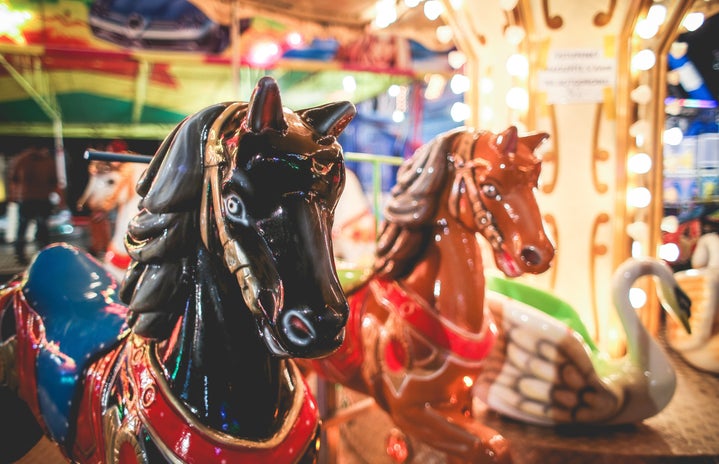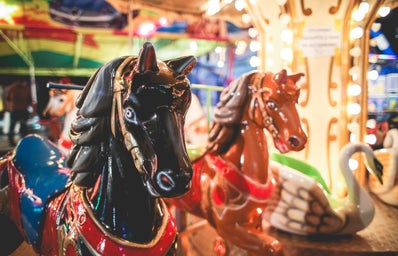If there’s one thing that I miss most from my childhood, it’s the way going to the county fair used to feel. The exhilarating rush of the rides, the way my family seemed to save up the entire summer just for the chance to spend a night eating overly-expensive and greasy fair food. It was the best way to end the summer. When I found my best friends in middle school, we began attending a church-ran festival to kick-off the summer as well. But nothing was as extravagant as the county fair held over the course of Labor Day Weekend. Somewhere along the line, though, the magic sort of fizzled out. I grew up, and going to the fair became more of a chore than a reward and the family time it once afforded became less frequent as well. My sisters grew out of liking the fair, and I grew out of wanting to spend every big event with my family. Some things became more fun with friends, and I guess that the county fair was one of them.
With this change, however, came the inevitable: after high school, the fair became juvenile. This saddens me, but it’s not something I really dwelled on until the last month or so. I’m currently taking a class where one of our required readings is “Joyland” by Stephen King. Now, I’ve never had any desire to read a Stephen King novel. His books are far too long to keep my interest, and although I love the horror genre, I don’t tend to seek it out. I have always known he was a great writer, it’s one of the facts of life, but I could appreciate that fact about him from afar. That was, until, a story about a young man working a summer job at an amusement park changed everything for me.
The world of “Joyland” utterly consumed me–it was impossible to think of anything else while reading it. The way that the world felt completely realistic, yet totally separate from my reality, was incredible. King’s writing truly put me in the mindset of a 21-year-old college kid working a summer job in 1973. The amusement park was so close I could almost taste it. I won’t spoil the story, because I genuinely think that everyone should read the book. It is a coming-of-age story that I cannot believe took me so long to find.
A huge plot point in the book was the ghost story surrounding an unsolved murder in the amusement park’s “Horror House.” After a young woman was found in a ride meant to scare parkgoers, many employees claimed to see her ghost, her soul seemingly trapped at the park. Since the book was written by Stephen King, there was, of course, an actual ghost at work here. This is no surprise though–the creep factor that carnivals have is much of the reason why they’re still so marketable today. There’s something eerie about a funhouse that no one can really explain, and don’t get me started on the clowns.
There were a lot of things I loved about the story, but the setting had to be my favorite part. The more I read, though, the more I felt that it strayed from my current reality. We need to change that somehow. Think about it–every television episode or movie that features some sort of amusement park, festival, carnival, circus or fair is genuinely the best of its kind. “Pretty Little Liars” featured several episodes where an event like this was the main focus. The season one episode “Monsters in the End,” was based entirely on the upcoming Rosewood Founder’s Day Festival, and was one of the most captivating of the season. “The Summer I Turned Pretty” featured a boardwalk amusement park as the main setting of its second season episode titled “Love Game.” The recently released film “Bottoms” also includes a fair scene that heavily influences the remainder of the movie.

These sorts of scenes can be wonderful special episodes, or just serve as a great plot line for any sort of story. If they are so great in the movies, then why are they so few and far between today? When I was little, I distinctly remember traveling circuses and carnivals advertising tickets when they were in town. Kids at school would enter raffles to win free passes for the day. I once won a prize at one of them. Sure, many of the traditions of “carnies” have fallen out of favor with the general public–holding elephants and tigers captive is now seen as animal cruelty, and for good reason. But the idea of selling fun was never a bad thought.
The joy of “Joyland” was the beating heart of the story. Despite the fact that the story is set in the 70’s, it really is timeless. So next time you see an advertisement for a local fair or festival, try and give it a chance. Who knows, you might even find a ghost along the way!




